Understanding Powerlessness in Recovery
Understanding powerlessness is a fundamental aspect of addiction recovery, particularly in programs such as Alcoholics Anonymous (AA). This concept plays a crucial role in helping individuals acknowledge their struggles and seek support.
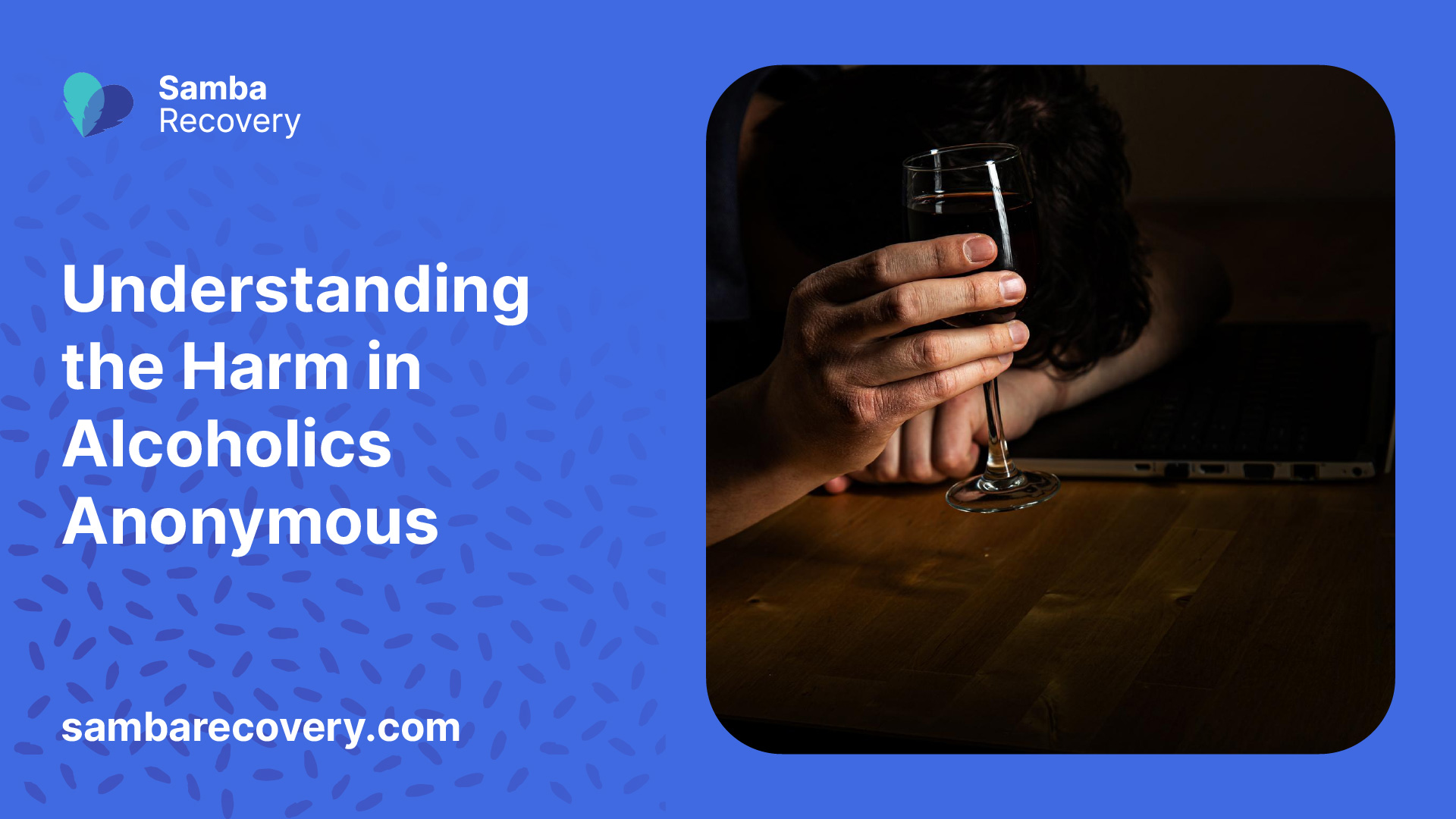
The Concept of Powerlessness
The notion of powerlessness refers to an individual’s lack of control over their addiction. It is encapsulated in the first step of the 12-Step program of AA: “We admitted that we were powerless over our addiction, that our lives had become unmanageable”. This concept is not a sign of defeat; rather, it serves as an empowering realization that while one cannot change their addiction, they can take steps toward living a sober life.
Acknowledging powerlessness can be liberating because it allows individuals to focus on their actions and decisions. By recognizing what is beyond their control, they can devote their energy to aspects of their lives that they can influence, such as seeking treatment and building a support network.
Admitting Powerlessness in Addiction Recovery
The act of admitting powerlessness is often a humbling experience. It requires courage from individuals as they confront the reality of their addiction. This admission is seen not only as a stepping stone in the recovery process but also as a vital component that encourages individuals to ask for help and share their experiences with others in recovery.
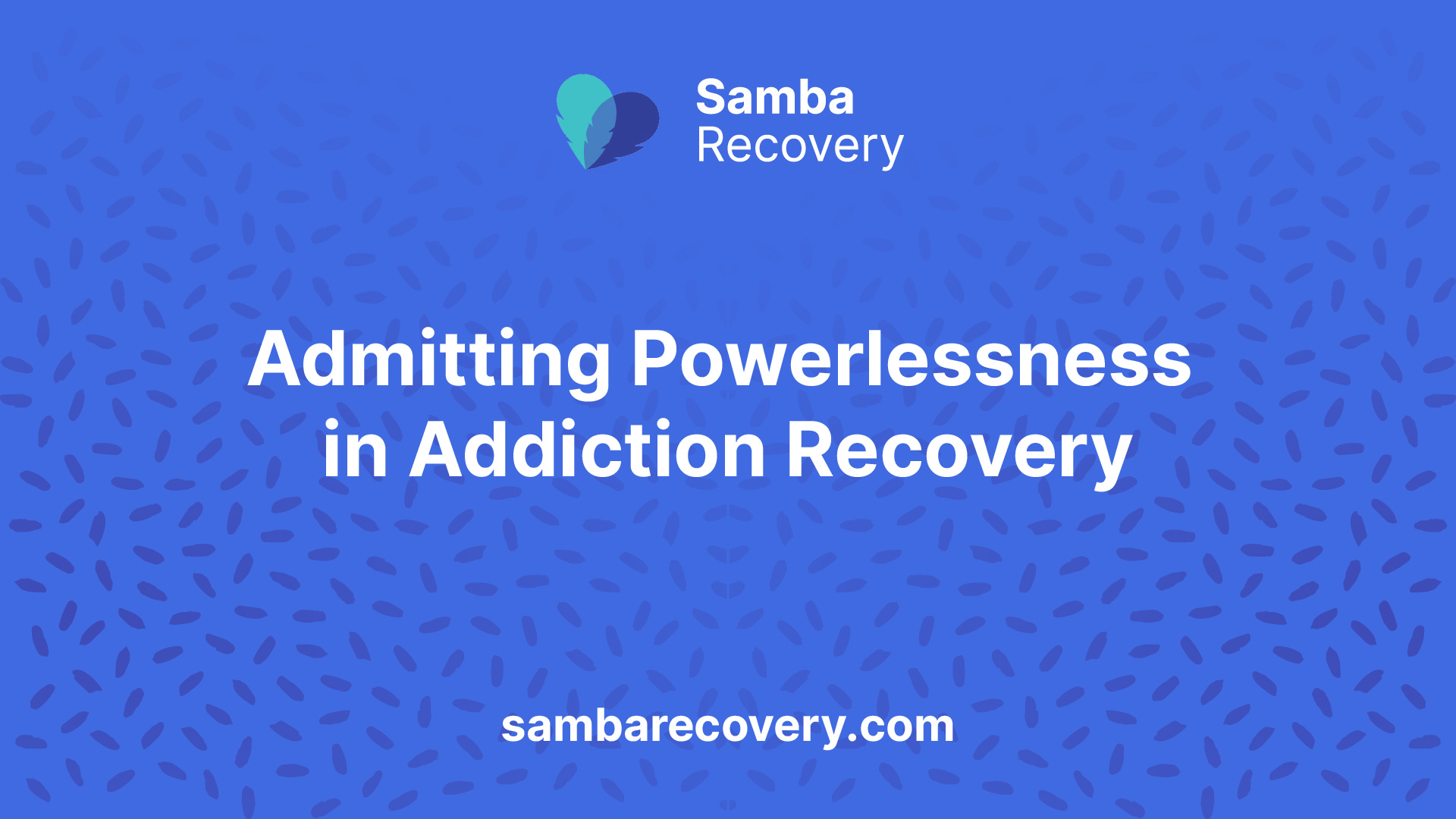
Admitting powerlessness can also facilitate connections with supportive peers and mentors within the recovery community. Understanding one’s limits can foster an environment of accountability and openness, which is essential for recovery. As individuals embrace powerlessness, they can harness the strength from communal support to navigate their journey toward sobriety [2].
Exercise in humility, acceptance, and acknowledgment of the need for help can facilitate healing and recovery from addiction, creating a pathway to a healthier, sober lifestyle.
Effectiveness of Alcoholics Anonymous (AA)
Alcoholics Anonymous (AA) is a widely recognized organization that aims to support individuals seeking sobriety. Understanding its effectiveness, particularly in terms of abstinence from alcohol, is crucial for evaluating its role in addiction recovery.
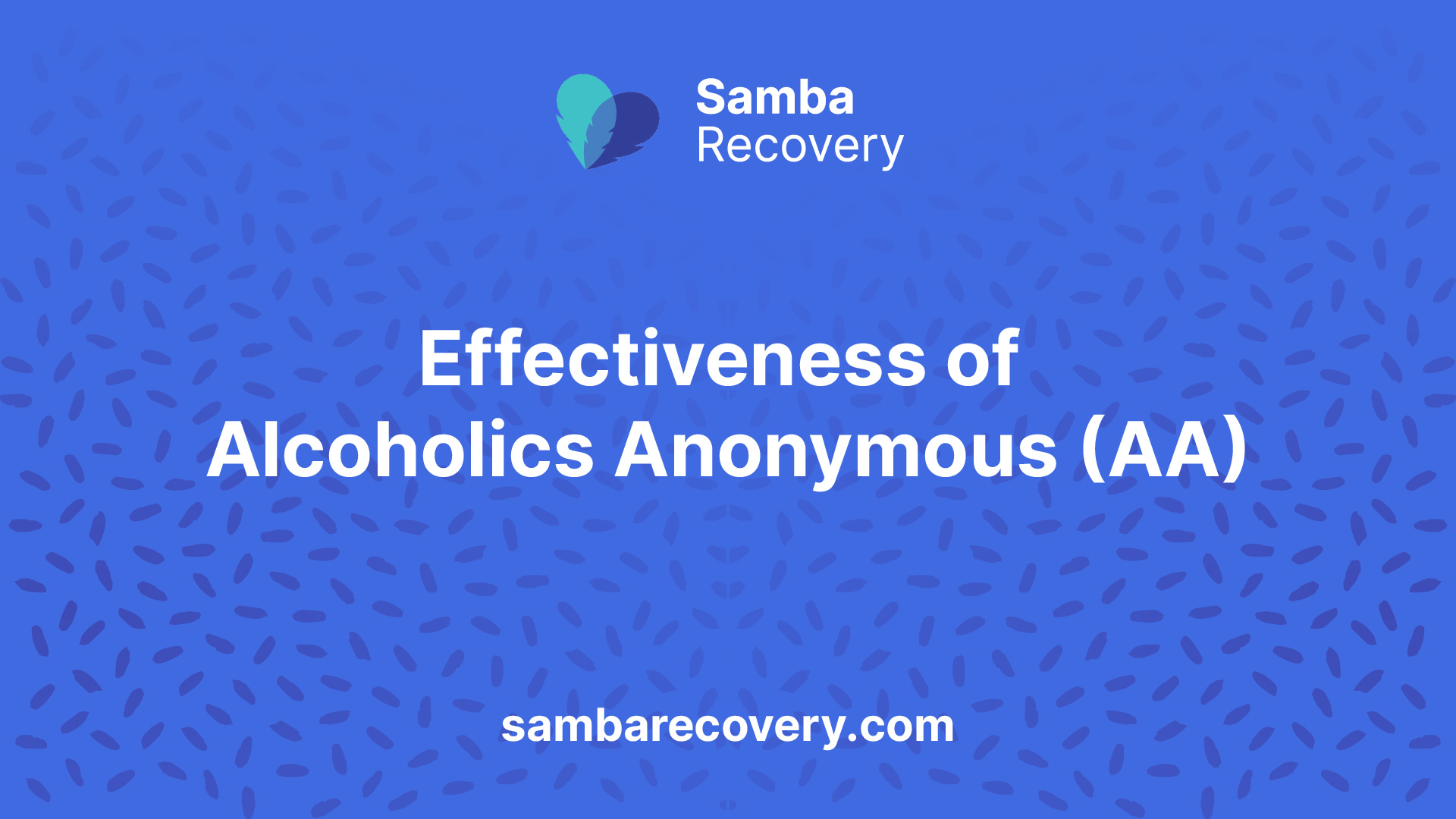
Rates of Abstinence in AA Attendees
Research indicates that rates of abstinence are about twice as high among those who attend Alcoholics Anonymous compared to individuals who did not participate in AA or similar 12-step programs. This suggests that engaging with AA provides significant support for those aiming to overcome alcohol dependence.
Attendance CategoryAbstinence RateAttended AA~50%Did not attend AA~25%
This table summarizes the relative effectiveness of AA attendance regarding abstinence from alcohol.
Relationship Between AA Attendance and Abstinence Levels
Higher levels of Alcoholics Anonymous meeting attendance are associated with increased rates of alcohol abstinence, indicating a clear dose-response relationship. Evidence suggests that previous AA attendance is predictive of later abstinence from alcohol, thereby establishing a temporally correct association [3].
Participants who attend more frequently report greater success in maintaining sobriety, further emphasizing the role of active participation in recovery.
Attendance FrequencyAbstinence CorrelationFrequent AttendeesStrongOccasional AttendeesModerateNon-AttendeesWeak
According to a systematic review of 27 clinical trials involving 10,565 participants, AA yields rates of alcohol abstinence and use similar to or better than many first-line clinical interventions. The organization has assisted countless individuals in their recovery journey, highlighting its impact on achieving sobriety. For anyone considering different aspects of addiction recovery, information on if one needs to hit “rock bottom” before seeking help can be found in the article do I need to hit alcohol rock bottom before going for treatment?.
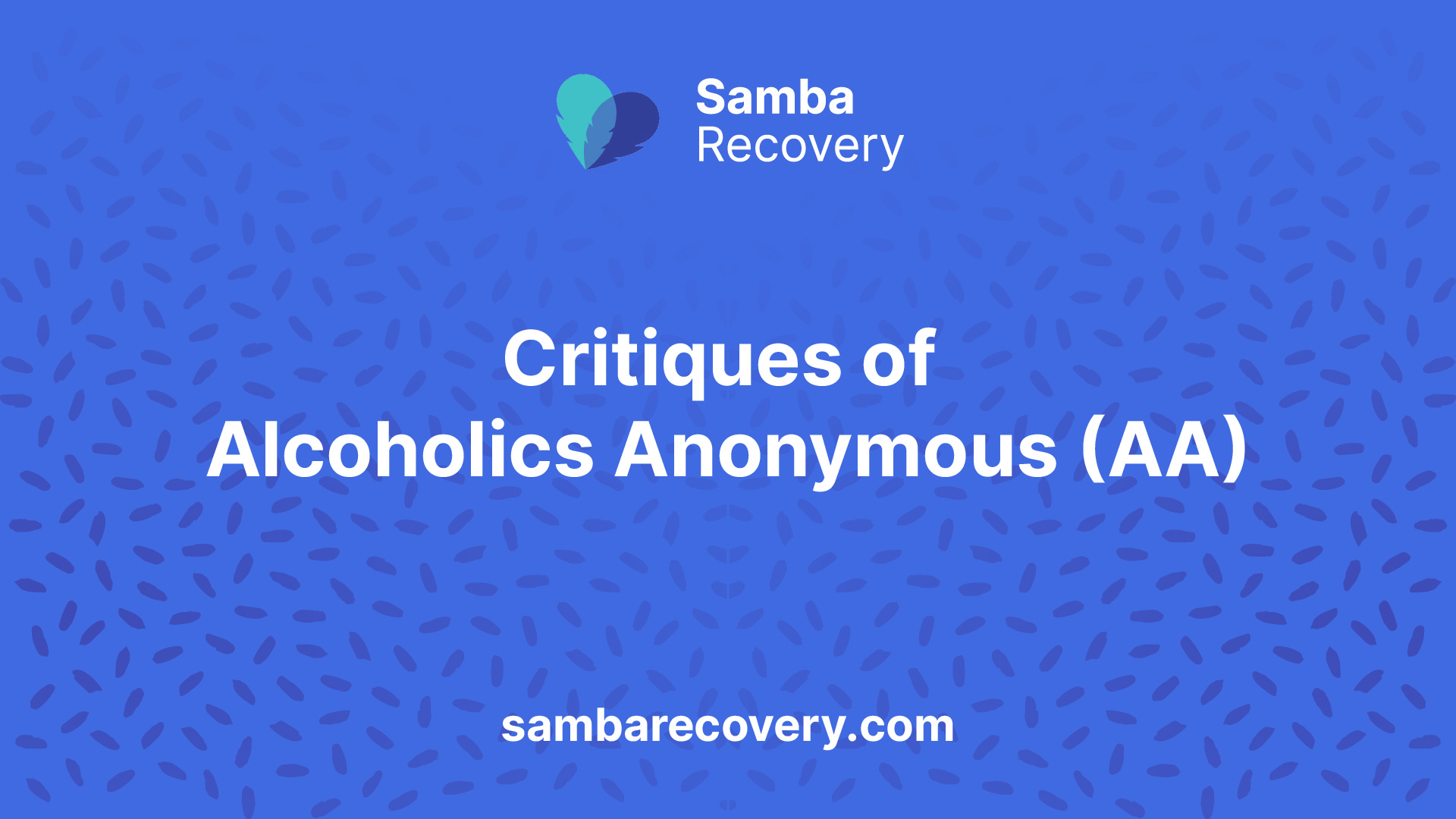
Critiques of Alcoholics Anonymous (AA)
Alcoholics Anonymous (AA) is a widely recognized program for individuals seeking recovery from alcohol dependence. Despite its popularity, there are significant critiques regarding the effectiveness and limitations of the AA approach, which can impact the overall recovery experience for many individuals.
Limitations of the AA Approach
One major criticism of AA is its heavy reliance on the 12-step model, which emphasizes complete abstinence from alcohol. According to author Gabrielle Glaser, this approach may not be the most suitable solution for everyone facing alcohol dependence. Instead, she suggests that alternative methods, such as cognitive therapy combined with the medication naltrexone, can assist individuals in moderating their drinking behavior without the need to quit entirely [5].
Furthermore, it is reported that up to 80% of rehabilitation centers in the United States employ AA or similar 12-step programs as their primary method of treatment. This dominance restricts the availability of other evidence-based treatment options that may be more effective for certain individuals [5].
AA can also inadvertently lead individuals to internalize failure if they do not respond to its methods. Glaser notes that participants may blame themselves for not succeeding, accumulating negative feelings that can affect their self-esteem and recovery process [5]. This dynamic can further complicate their relationship with recovery and hinder progress.
Lack of Alternative Treatment Options
A notable critique of AA is its failure to provide alternative treatment options for individuals who may not benefit from its program. As Glaser highlights, many participants are left without guidance about other methods of recovery if AA proves ineffective. This lack of support can lead to detrimental outcomes for those still struggling with their addiction.
Additionally, the spiritual emphasis of AA does not resonate with everyone. For some individuals, the focus on spirituality may be an obstacle rather than an aid in their recovery journey. Alternative mutual-help programs, like Self-Management and Recovery Training (SMART) and LifeRing, offer secular approaches that may provide a better fit for those who are not comfortable with the religious components of AA [4].
The ongoing criticisms surrounding Alcoholics Anonymous highlight the need for a more diversified approach to addiction recovery. It emphasizes the importance of considering individual preferences and situations when selecting a path toward sobriety.
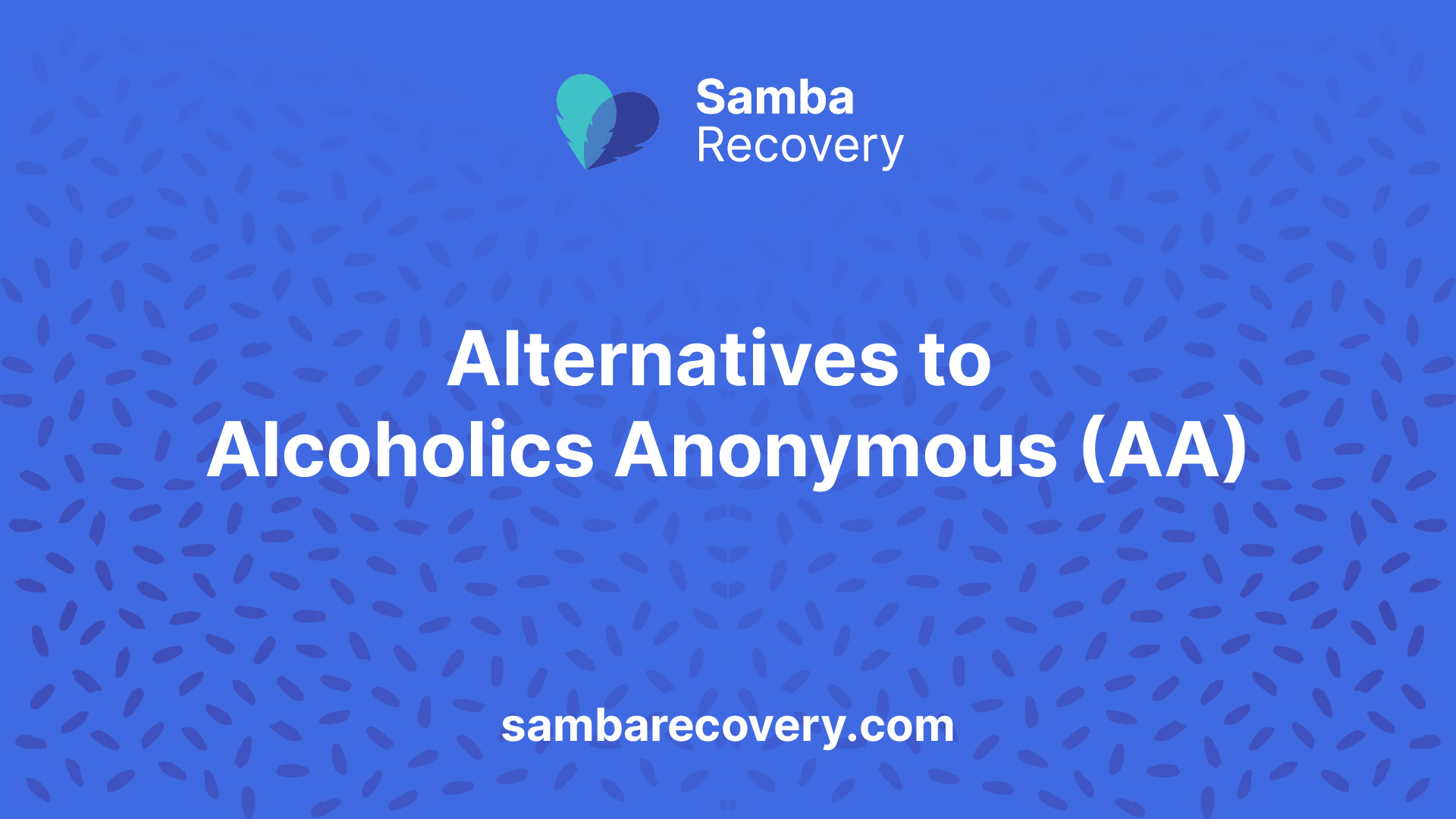
Alternatives to Alcoholics Anonymous (AA)
For individuals seeking support in their recovery journey, several alternatives to Alcoholics Anonymous (AA) exist. These options provide diverse approaches and philosophies aimed at addressing addiction without the traditional AA framework. Below are some notable alternatives:
SMART Recovery
SMART Recovery is a research-backed alternative to AA that focuses on self-empowerment and evidence-based strategies. Rather than labeling individuals as “alcoholics,” SMART employs Motivational Enhancement Therapy and Cognitive Behavioral Therapy techniques to help participants modify self-destructive behaviors related to alcohol misuse. This approach emphasizes personal responsibility and the development of coping skills. For more details about SMART Recovery, visit Alcohol.org.
FeatureDescriptionApproachResearch-based, non-labelingFocusMotivational Enhancement Therapy, Cognitive Behavioral TherapyGoalChange in self-destructive behaviors
LifeRing Secular Recovery
LifeRing Secular Recovery presents an alternative to spirituality-based programs like AA. This group emphasizes personal recovery without invoking a higher power. Participants are encouraged to cultivate their “sober self” and receive peer support that fosters self-reliance and abstinence from substances. LifeRing promotes practical tools for recovery in a secular environment. More information is available at Alcohol.org.
FeatureDescriptionApproachSecular, peer-supportedFocusPersonal recovery, “sober self” developmentEnvironmentNon-spiritual, practical tools
Women for Sobriety (WFS)
Women for Sobriety (WFS) is tailored specifically for women, offering gender-sensitive support focused on emotional and spiritual development. The program promotes positive acceptance statements that foster self-worth and accountability for actions. WFS seeks to empower women in their recovery journeys while addressing unique challenges they may face. Details can be found at Alcohol.org.
FeatureDescriptionFocusGender-specific supportApproachPositive acceptance statementsGoalEmotional growth and self-worth
Moderation Management (MM)
Moderation Management (MM) is designed for individuals who wish to manage their drinking rather than pursue complete abstinence. This peer-support program encourages participants to set personal drinking goals and utilize self-management strategies to control their drinking habits. MM is particularly appealing for those who want to address problematic drinking in a less stringent environment. Further insights can be found at Alcohol.org.
FeatureDescriptionApproachPeer-supported, goal-orientedFocusManaging drinking habitsGoalSelf-management of behaviors
These alternatives to AA demonstrate that there are various paths to sobriety, each catering to different needs and philosophies. Individuals seeking support can choose an approach that resonates with them and aligns with their unique recovery goals.
Diverse Perspectives on Powerlessness
The concept of powerlessness plays a significant role in various 12-step programs, including Alcoholics Anonymous (AA) and others. Understanding how this idea is utilized can provide insight into its implications for individuals in recovery.
Powerlessness in Various 12-Step Programs
In Alcoholics Anonymous, members acknowledge that they are “powerless over alcohol.” This foundational belief also extends to other 12-step programs, such as Narcotics Anonymous (NA), where individuals declare themselves “powerless over their drug problem” [2]. The twelve steps require participants to accept their inability to manage their addiction, leading them to seek assistance from a higher power.
The notion of powerlessness is not limited to addiction recovery. Programs such as Al-Anon (for family members of alcoholics), Gamblers Anonymous, Overeaters Anonymous, and Sexaholics Anonymous each incorporate this principle but may adapt its interpretation to fit their specific context. Understanding how different programs approach powerlessness can aid individuals in identifying which support system might resonate with them the most.
ProgramPowerlessness ConceptAlcoholics AnonymousPowerless over alcoholNarcotics AnonymousPowerless over drugsAl-AnonPowerless over loved one’s addictionGamblers AnonymousPowerless over gamblingOvereaters AnonymousPowerless over food choicesSexaholics AnonymousPowerless over sexual behaviors
Embracing Powerlessness for Sobriety
Admitting powerlessness can be a liberating experience for individuals seeking recovery. Accepting that they cannot control their addiction often opens pathways for seeking help and support. By relinquishing the false sense of control, individuals may find the strength to openly acknowledge their struggles, which is essential for effective recovery [2].
Understanding the role of powerlessness allows individuals to engage with their support systems more effectively. This recognition not only diminishes the isolation often felt in addiction but also fosters a community of shared experiences and mutual support.
Many find that embracing powerlessness enables them to focus on recovery goals, letting go of the self-blame that often accompanies addiction. It encourages individuals to view recovery not as a solitary journey, but as one that benefits from collective strength. For more information about the importance of seeking help, refer to our article on whether one needs to hit rock bottom before treatment: do I need to hit alcohol rock bottom before going for treatment?.
By exploring these varying perspectives on powerlessness, individuals can better evaluate their own journeys toward sobriety. Each program offers unique insights into the path to recovery, helping individuals find the approach that aligns with their personal beliefs and needs.
The Role of Powerlessness in Support Groups
Understanding the role of powerlessness in support groups can help individuals navigate their recovery from addiction. This can be particularly relevant for those exploring the approaches taken by groups like Alcoholics Anonymous (AA).
Powerlessness and Seeking Help
Admitting powerlessness in the context of addiction is a crucial step towards seeking help and support. This acknowledgment emphasizes the importance of relinquishing control over the addiction, which can often feel overwhelming. Recognizing one’s limitations allows individuals to open themselves up to the assistance available through support groups. It creates an environment where vulnerability is embraced, facilitating a strong connection with others in similar situations. For further insights into this concept, one can see how the idea of powerlessness is explored in various programs, including do I need to hit alcohol rock bottom before going for treatment?.
Managing Addiction Through Powerlessness
Understanding powerlessness in sobriety enables individuals to manage their addiction more effectively. By recognizing that they are powerless over their substance use, individuals can engage more fully with support and resources designed to aid their recovery. This acknowledgment can lessen feelings of isolation, fostering a sense of community among group members who share similar struggles.
The concept of powerlessness is fundamental to many 12-Step programs, including Alcoholics Anonymous, which can help individuals find common ground and support within the group dynamic. Individuals who fully embrace this concept may find it easier to commit to their recovery journey. This communal support reinforces an understanding that they are not alone in their experiences. As noted, a variety of 12-Step groups utilize this notion differently, each tailoring its approach to the specific needs of its members.
In summary, acknowledging powerlessness can be a powerful tool in recovery, providing a pathway to support and effective management of addiction. By addressing this aspect, individuals can better navigate their struggles and thrive in a recovery-oriented environment.
References
[2]:
[3]:
[4]:
[5]:






